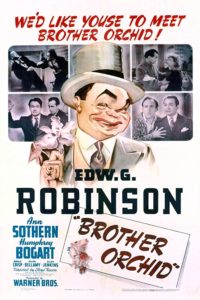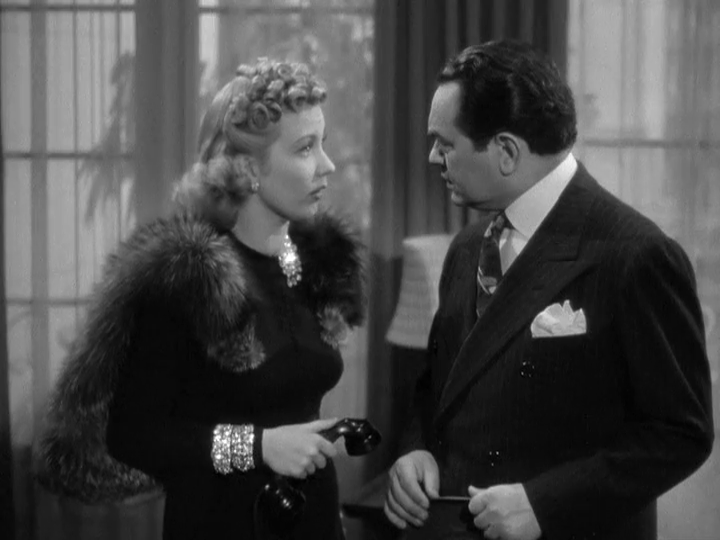“I always was a great guy for orchids. That’ll be my new tag: Brother Orchid.”
|

Synopsis:
Before a crime lord (Edward G. Robinson) travels to Europe in search of some “class”, he helps his loyal girlfriend (Ann Sothern) secure a job and leaves his territory in the hands of an underling (Humphrey Bogart). Upon his return, he is nearly killed by Bogart and hides out with a group of flower-growing monks (including Donald Crisp and Cecil Kellaway) who help him achieve a change of heart. When Robinson learns his girlfriend is about to marry a wealthy cowboy (Ralph Bellamy), he emerges from seclusion and decides to take action — but will his new, more charitable outlook on life impact his choices?
|
|
Genres, Themes, Actors, and Directors:
- Ann Sothern Films
- Cecil Kellaway Films
- Character Arc
- Donald Crisp Films
- Gangsters
- Humphrey Bogart Films
- Mistaken or Hidden Identities
- Priests and Ministers
- Ralph Bellamy Films
Review:
According to TCM’s article, this comedic crime flick (featuring Edward G. Robinson and Humphrey Bogart in their fourth and penultimate on-screen pairing before Key Largo in 1948) was purportedly made by Robinson in exchange for his casting in the more serious, non-gangster-themed Confessions of a Nazi Spy (1939) and The Sea Wolf (1941). As a farce, it pales in comparison with Robinson’s delightfully goofy A Slight Case of Murder (1938) — however, it offers enough off-beat touches and narrative twists that fans likely won’t be too disappointed. Bogart’s performance is inconsequential, but Sothern is well-cast as Robinson’s deeply loyal albeit “dizzy” moll.
Redeeming Qualities and Moments:
- Edward G. Robinson as Little John Sarto

- Ann Sothern as Flo

- Effective cinematography

Must See?
No, though it’s worth a one-time look.
Links:
|
One thought on “Brother Orchid (1940)”
A once-must, for the performances.
Bogart and Robinson fans – familiar with the tougher gangster films they were in together or separately – are likely to find this a refreshing change. Bogart’s role here is nothing much – though he does have one nice scene with Blondell in which he plays dumb to her in order to get his way. But Robinson fans are likely to appreciate his lighter touch here.
As a gangster flick, the film itself in general has a lighter touch – and a unique one when, midway, it becomes a whole other film altogether.
Though a comedy, it’s strictly amusing as opposed to laugh-out-loud. But, as such, it has a satisfying entertainment value. It also comes with a warm message of humility – and the conclusion is simply lovely.